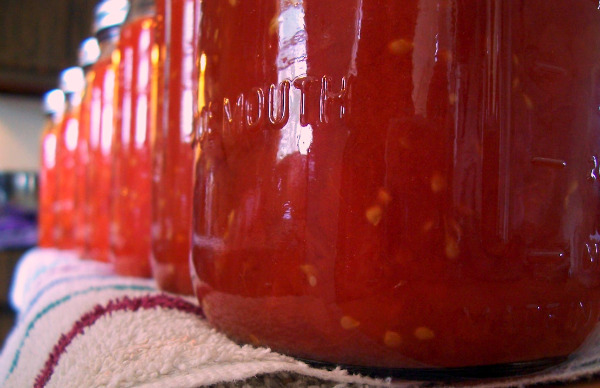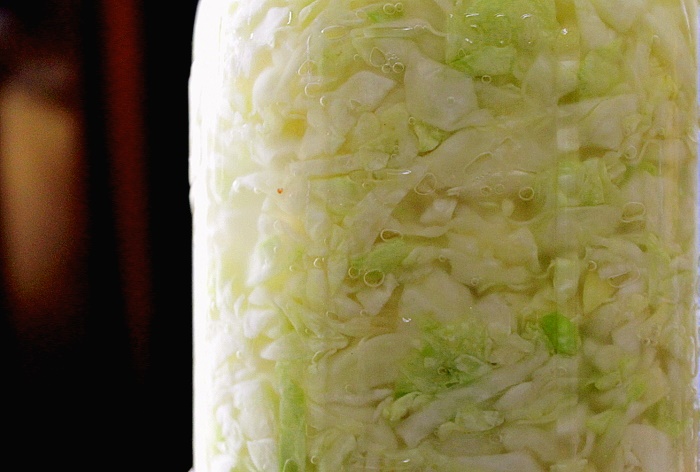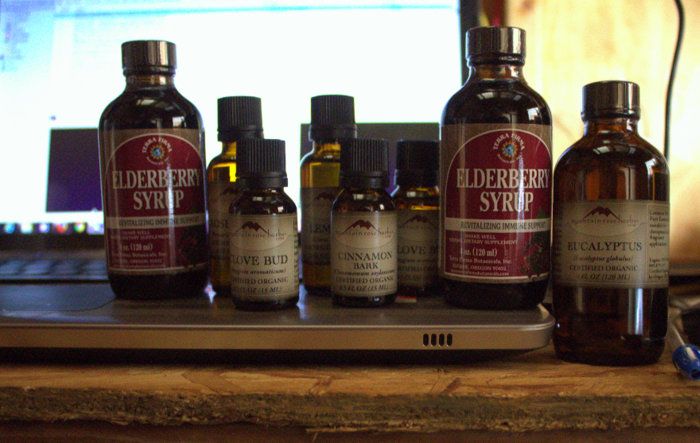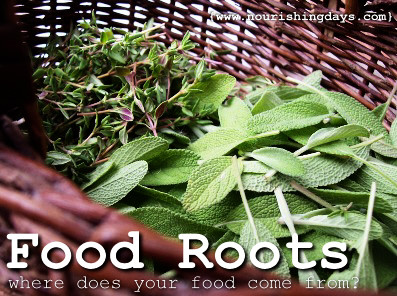Real Food Doesn’t Need An Association (my response to the corn refiners association debacle)

If a food is inherently nourishing to the body then would it need to be defended by an association with multi-million dollar companies residing as the board of directors? That’s the question I asked when I read about the Corn Refiners Association’s attempts to persuade consumers, through "mommy" bloggers, that their products really aren’t so bad after all.
If you read the comments on Diana’s post you will find some interesting tidbits from the corn refiners themselves. (Honestly, this has me steaming mad. I will restrain myself from posting every single sentence in caps, but just know that I am yelling at the top of my lungs here.)
Obesity Is Our Fault… If We Believe Their Propaganda
Therese, who writes at the Sweet Spot Blog says:
"Obesity has also been correlated with our portion sizes; secondly there are more factors to obesity than simply the food we eat. For example, in the past 35 years, daily calorie intake for the average American has risen 25%."
Besides the fact that she never addresses the question at hand, I think she might be right. What she is trying to say is that it is not the Corn Refiners fault that we are fat and unhealthy, it is our fault. I agree, if we purchase their products then we are sick and fat by our own ignorance.
If an association uses the word "Refiner" in the title, why would you believe that they are promoting a healthy product? The farming practices and the type of corn grown have been selected and genetically modified to produce THE MAXIMUM YIELD. (Note I did not say nutrients or flavor).
If you head over to the CRA’s website they’ll let you know what kind of "food" they really are producing:
"Corn refiners use shelled corn which has been stripped from the cob during harvesting. Refiners separate the corn into its components — starch, oil, protein and fiber — and convert them into higher value products." (source)
Sounds like a delicious, nourishing whole food doesn’t it?
Corn Farmers Feeding The World?
When we move down in the comments Cassandra, who also writes at the Sweet Spot Blog, says:
"Coming from a fifth generation family farm in rural Minnesota…. My family understands that our job, in production agriculture, is about feeding the world."
Notice how she said they were in the "production agriculture" business, not the (ahem) farming/growing food business. And lets be real here… is production agriculture about feeding the world or is it about keeping a wealthy, but sick nation in cheap CAFO meats and an endless supply of coca cola and chicken nuggets?
I spent many of my most cherished childhood memories at my Grandparents’ home, which is also a family farm in rural Minnesota. They raised cattle for dairy, which my Dad milked twice a day for years. They grew soy beans and field corn and do you know where most of it ended up?
"According to the National Corn Growers Association, about eighty percent of all corn grown in the U.S. is consumed by domestic and overseas livestock, poultry, and fish production… About 12% of the U.S. corn crop ends up in foods that are either consumed directly (e.g. corn chips) or indirectly (e.g. high fructose corn syrup)." (source)
How are we "feeding the world" when we create sick animals and need a major chemical operation to turn that grain into food that people will eat?
The Solution?
Honestly, I don’t believe a word these people say. Neither science nor common sense backs up the mass farming and refining of corn done in this country. It creates sick soil, sick animals, and sick people. Dextrose can’t be grown in your garden and "corn sugar" can’t be bought from a local farm.
These people are trying to sell you something that our great grandmothers would never have recognized as food. Don’t buy it… and definitely don’t eat it.





That’s my girl – way to go, Shannon.
@Kathi, haha – thanks mom 😉
Applause! I heartily agree. Any industry where farmers get paid by the government to grow surplus of inedible food to give to industries that research new ways to use that surplus without researching what it will do to consumers, where farmers get paid less and less for this until they have to sell out to mega-agri is inherently unsustainable. Hopefully it’s possible to go back to a model of small, sustainable farming of diverse food crops.
Here here!!!
Have you seen the TV commercial about how corn syrup is actually “natural?” Give me a break!
Reading Michael Pollan’s The Omnivore’s Dilemma really opened my eyes to the corn industry. That statistic (12% is all humans consume) is pretty shocking.
@Kait Palmer, No I haven’t and right now I am even more thankful for not having a television. I imagine I would be shaking my fists as I watched.
Standing up clapping for you on this one Shannon.
You go girl.
Thank you for speaking up!
I spoke up to one of these Mommy bloggers, Tanya at http://www.mommygoggles.com . She allowed my first comment but when I challenged her notion that moderation of HFCS is the key and when I pointed out it is hidden in so many things how does one REALLY know how much they are consuming, she would not post that comment.
Yes, over eating is a problem. CRA would like you to think that it is just overeating that causes this issue. They are not telling the whole truth. There is a reason people are over eating. Because is so sweet & so full of empty calories that it passes the “saeity” function that makes you feel full, end result? You eat more.
They are telling half truths.
@Michele, I am not so quick to jump to the conclusion that these bloggers are completely without integrity. Instead I think they are representative of a nation who will believe any line of propaganda when the alternative requires a bit more effort or research.
That statistic that states 12% is all humans consume is in itself inherently misleading. First of all, we must define the word “consume.” It just so happens that there is direct consumption, which I stretch (and I assume the statistic does as well, although I might be wrong; there’s an AWFUL lot of corn grown out there…) to include the direct consumption of not just recognizable corn, but also corn products, or, by-products, if you will. I would also venture that there is considerable non-edible products that are corn products. The company where I work considers this a super-“green” building, in that the disposable products used are made from corn–we literally drink out of compostable corn cups (they look like clear Solo cups!), and eat off of compostable corn plates. This is the product that swerves into the “indirect consumption” category for me, as we aren’t INGESTING the corn or corn product; it’s not an ingredient in something that I am literally consuming. Where the definition is black and white as to truly indirect consumption, let’s talk about the beef burgers being sold at McDonald’s, and the corn that went into feeding those sad creatures. How about what CAFO chickens eat, what do the chickens at egg factories munch on besides soy? There are only so many stale donuts for the pigs to eat…
I would venture that between the direct, grey-area indirect, and obviously indirect consumption of corn, the number is significantly higher than 12%. As in, say, 100%? Because if that’s not the case, then where’s the rest of that corn going, anyway? Oh yeah, I forgot. RESEARCH (ala Marie’s comment!).
Kudos to you, Shannon, for not ALL CAPS your whole post. I feel the exact same as you do!
Great post!
And I just saw this post about Soda containing MORE fructose than Glucose…so much for their reasoning that it is the “same” as table sugar.
http://www.grist.org/article/food-2010-10-26-hfcs-contains-more-fructose-than-claimed
“….
Researchers from the University of Southern California decided to test actual brand-name sodas — including Coke, Pepsi, and Sprite — to confirm their exact sugar content and makeup. They found that the HFCS in the vast majority contained far more than the presumed 55 percent fructose: in the case of those three brands, it was actually 65 percent fructose.
Why is this important? It’s because research has shown fructose to be particularly harmful to human health. Unlike excess glucose, which passes through our digestive tract and is excreted, 100 percent of fructose that’s consumed is taken up by the liver. Once there, fructose causes increased fat deposition in the abdominal cavity and increased blood levels of triglycerides — both of which are risk factors for heart disease and diabetes. So, over a lifetime, the HFCS in the 53 gallons of soda per year the average American drinks thus increases their fructose consumption compared to table sugar, and probably adds up to big health problems.
…”
@Emilee, I have read similar studies on fructose as you mention. Bottom line is that the natural foods containing fructose, primarily fruits, come with fiber and in limited quantities so as to limit the direct fructose consumption that we are getting through corn and juices.
These people are organized to make money. They are not good nor are they evil. But, if we think they are worrying about our health as medical practitioners would and that we can consume anything they offer us then we deserve what we get. The food supply system has gone big time due to changes in our economic structure as well as technological changes and everything else. My grandfather, who used horses to pull the plow when I was a little boy, must be looking down from that big farm up in the sky scratching his head in wonderment.
@louis klugh, I think you hit on my point exactly. If we aren’t willing to do the leg work (or use common sense) then we are sick by our own ignorance or laziness.
It’s all business to them – they’re not in it for the health of consumers, but for money – that’s why people need to educate themselves on what it is they’re putting into their bodies – those companies aren’t going to do it!
Bravo, great that you raised your voice about this!
As a farm kid myself, let me put a different perspective on all of this. Oh, and i might add, I’m not a huge fan of corn syrup either… But, as to the reason that we don’t farm with horses or have small farms anymore is simple – the price people, including most of you, are willing to pay for your food has decreased dramatically over the past century. Back in the day, a family could be supported on a 40 acre farm with no outside income. When I was a kid in the 70’s and 80’s, my dad had a “small” farm of 380 acres or so (more than a square mile) AND a full time job pumping oil wells. Between the two of them, he got by. He would take vacation time to harvest (it was a wheat farm) and worked evenings/weekends the rest of the time. Needless to say, we didn’t see him much. Now days, I’m not sure that he could make it doing that – and that’s likely the reason that none of us kids are taking the farm over. And that’s the reason that big ag has become big – because only at a larger scale with bigger tractors and higher production levels is it possible for the farmer to support his family.
YES, there are small farmers doing just fine growing tomatoes and carrots and blueberries… and selling at farmers markets. I’m very glad that they are able to do that. They are lucky in that they live close enough to an urban setting that allows them a market for their crops. Out in the prairie there is well, not many folk. Think Kansas or South Dakota. No people means no farmers markets or alternative places (like high end resturants) to sell to… so what exactly is left? We can all leave and do other things (and by the way, we are – population levels in rural areas in the midwest are falling dramatically) but ultimately, there are a lot of people in this country that need food in some form and fashion.
Every industry must do its best to promote its product. Corn is no exception. You don’t have to like it or agree with them… I for one don’t agree with Revlon that globs of goo on my eye lashes makes me look prettier, but that’s OK. I get to decide if I buy it or not. Soda is not healthy, even without corn syrup. If not the corn, then it would be cane sugar (which tastes SO much better in it by the way) and then there’d be folks upset about that, too. In the old days, it was beet sugar…
So, if you don’t like the corn, that’s fine. Don’t buy it. But be willing to pay more for food, which I’m guessing that you are. I do and i’m OK with it. We buy lots of organic and local foods and do homemade as much as possible… and as a result we support those types of farms. Also, don’t buy the meat/eggs/dairy that is produced on corn either. Again, we don’t do that… we’re voting with our pocket books, which is the biggest vote you can cast. Change can come, but only if we support it, and our farmers (who are just families trying to get by after all!) and not demonize the whole lot. Calling names doesn’t help anyone, but lending a hand and support does.
Genie – Thanks so much for interjecting your thoughts. I also believe that individuals are responsible for their health. They need to educate themselves, and spend the time and money to nourish their own bodies, and those of their children. Theoretically if consumers stopped consuming unsustainable food laced with corn in various forms then the demands of farmers would be different.
The government subsidies also play a part and we have to ask ourselves how should we be farming? Should we be trying to make a living similar to someone who works a specialized job in the city or should we be willing to make monetary sacrifices in order to live according to God’s commands – simply, working with our own hands.
Because I have seen my own families struggle with large scale farming I can attest to it being extremely difficult. You are absolutely right – people expect cheap food and it simply isn’t possible. But that doesn’t mean that the monocropping model is one which we should follow. Nor should the “quality of life” that most of our society expects.
Thanks again for your input on this, Genie.
The “corn” issue frustates me. Being my family suffers from yeast, corn (which is in everything) contains over 24 differents types of mold. Having children in school, it is hard to keep them away from corn products. Most people haven’t a clue how much corn is part of the culprit of obesity and disease. The gov’t is on a mission to control what we eat, but I hear nothing about removing the real issues in our food.
Shan
I thoroughly agree with the fact that these major corporations are pushing a product(s) that is destroying our nation. It’s sad that so many people are consuming this stuff without the knowledge of the adverse side effects that it has. However, to attack the rural, small town farmers of our nation seems a bit off. These people are just trying to support their families and way of life. Are they enabling these corporations? Sure, but they, too, have to use a little bit of business sense. Unfortunately, it’s more beneficial for them to grow corn and other cash crops and sell them to these corporations. I understand that many farmers will defend the corn industry which leads us to believe that they support it, which, I’m sure, some do. However, I think it’s safe to say that most of them are just defending their livelihood. I know that you don’t think this Shan, but for those who do believe that most of these farmers are purposely supporting an industry that’s destroying our nation, I challenge you to go talk to some of these farmers, like my grandpa. Even without asking them directly, I believe that you’ll be able to tell from a simple conversation, what type of morals these individuals have and what they value most. This information alone will tell you that it wouldn’t be their goal to harm anyone, let alone our entire nation. Again, I don’t think that you believe this Shannon but there are people out there who do and I’m just trying to get them to think a little.
@Ryan, Hey Ry (my lil brother), thanks for chiming in.
I totally get what you’re saying. And even though I was trying to address the Corn Refiners Association, not the farms themselves, I got a bit sidetracked and went down that rabbit hole.
I think you are right – a lot of farmers feel like their hands are tied. Our country expects cheap food. Right now the way to get that is through mass monocropping of corn, wheat, soy, etc. So farmers must either give up their lifestyle and livelihood or continue to farm what the government will pay them to farm.
I really think everyone has a responsibility here. First and foremost is consumers. If we continue to buy chicken, beef, and processed foods that rely heavily on corn and an unsustainable farming system then that is exactly what we’re going to get. And all of the sickness and broken soil that comes with it.
Likewise, farmers have a choice to make. Continue to farm the way we’ve been doing for the past 60 or so years or start to think in terms of common sense farming. Grow crops that people can eat without a middle man (aka the corn refiners). Grow food that doesn’t depend on oil to be refined and shipped across the country. Grow food that makes people healthy. Grow food for your community first.
And there are always going to be corrupt governments who don’t care a lick about the farmer or the consumer. There are always going to be people like the corn refiners association who do not care if consumers are healthy or farmers are getting a fair wage for their products. So if consumers say no to their products and farmers refuse to grow crops that require refining and loads of oil, we have a win-win.
I know it’s easy to look at things from the outside and say “here’s a solution”. But I do believe that if people were willing to make some sacrifices – consumers and farmers – we could have a more sustainable, healthy food system.
And THIS, my dear friends, is why my husband and I have decided to eat only organic local grown food when we are at home. We have been away from home for the last 2 weeks and I am already having terrible digestive problems and he is starting to. Neither of us feel well. Can’t wait to get back to Colorado and our CSA farmer, who is saving my shares for me while I am gone. I will have a ton of fermenting, drying, freezing to do in the next week. I feel sooo fortunate, and that is a serious comment, not a joke.